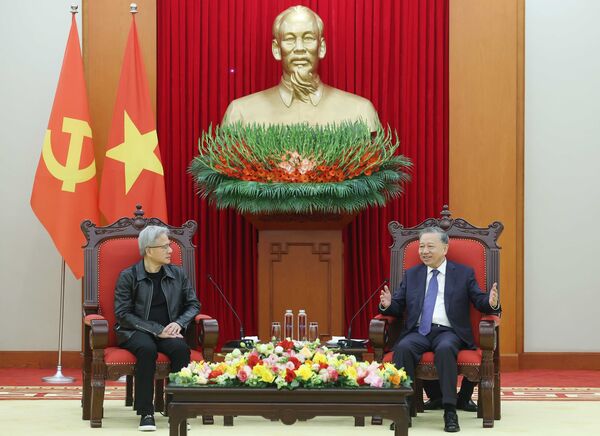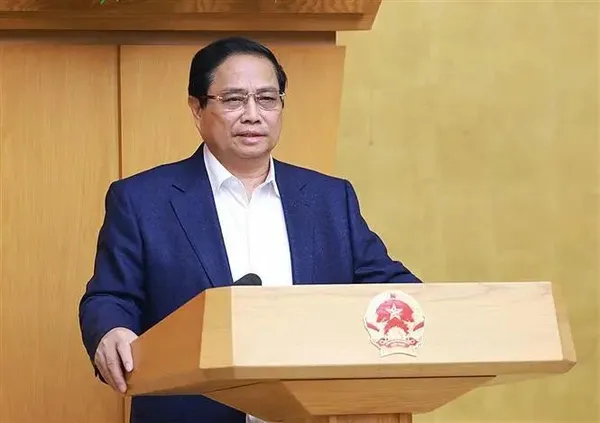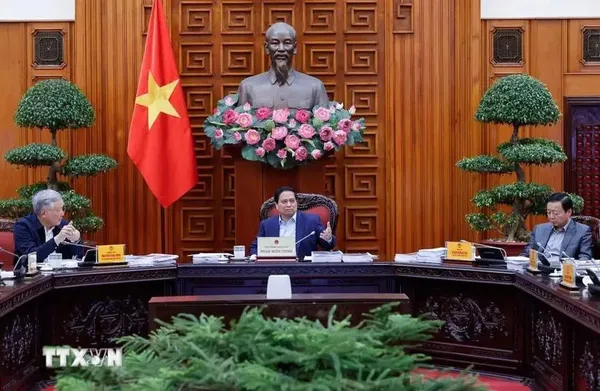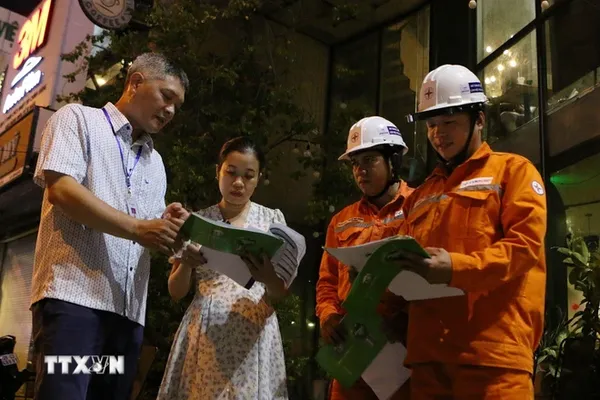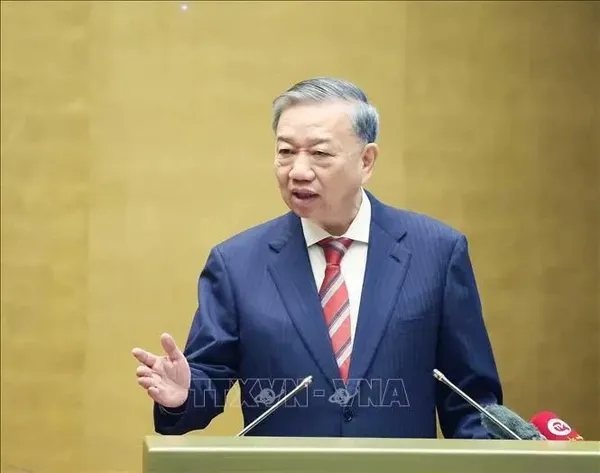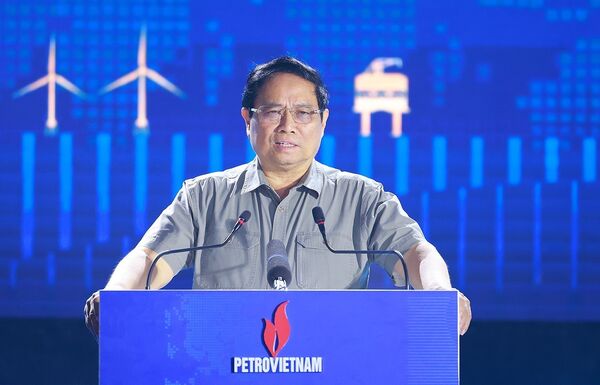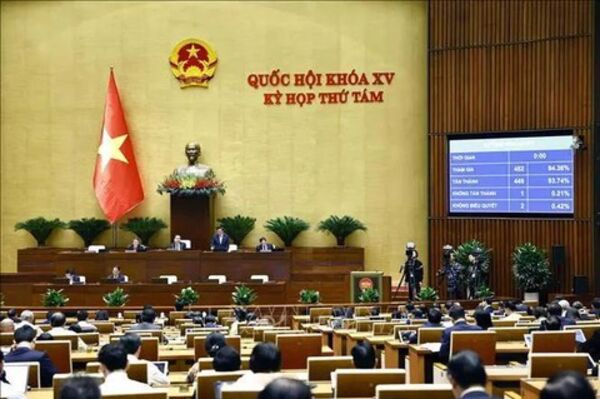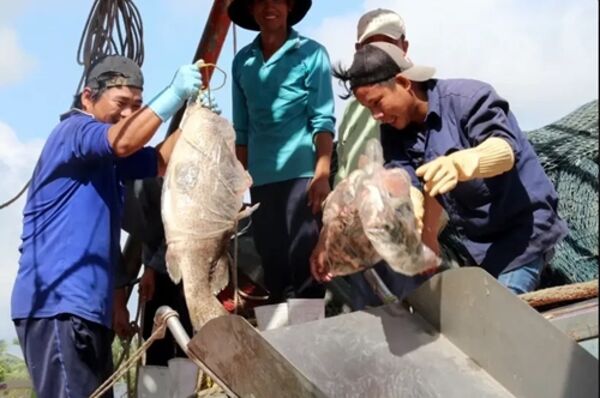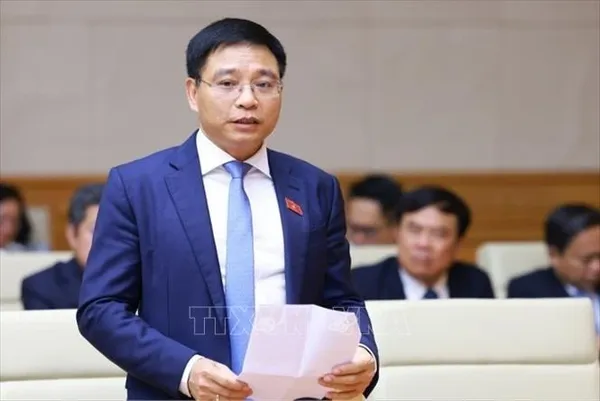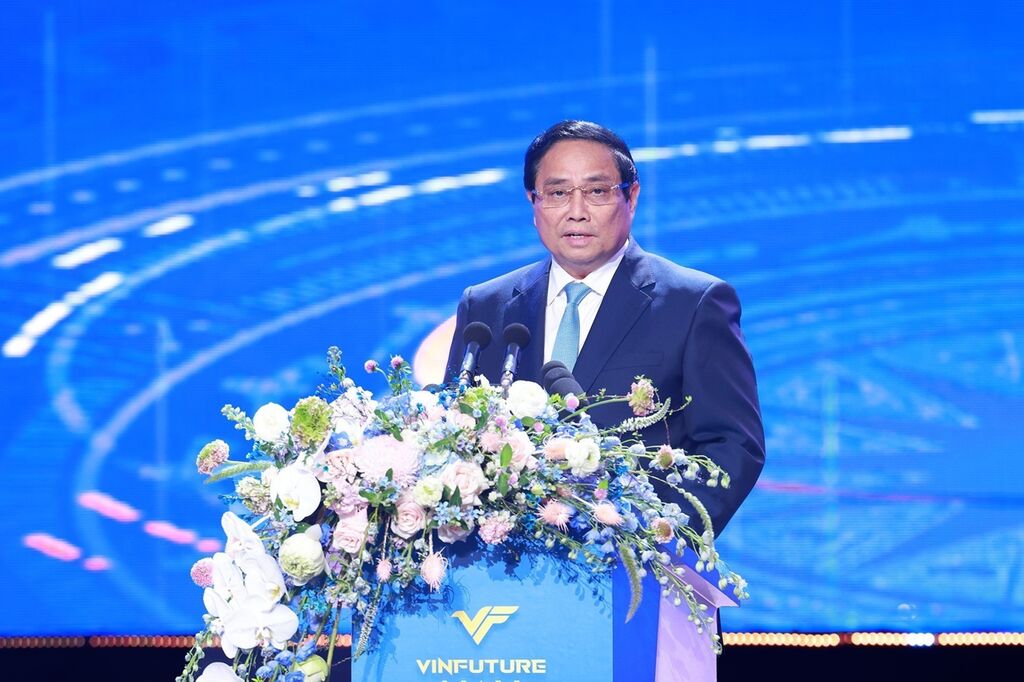 |
| PM Pham Minh Chinh addresses at the 4th VinFuture Prize awarding ceremony in Hanoi on December 6. (Photo: VNA) |
Hanoi (VNA) – The Vietnamese Party and State always attach importance to science-technology and innovation, considering them an objective requirement, a strategic choice, a national policy and a top priority which will drive rapid and sustainable development in the new era - the era of Vietnam’s rise, Prime Minister Pham Minh Chinh has said.
Addressing the 4th VinFuture Prize awarding ceremony in Hanoi on December 6, PM Chinh highlighted Vietnam’s priority to fine-tuning institutions, mechanisms and policies for science-technology and innovation, especially in emerging and critical areas such as digital transformation, green transition, creative economy, semiconductor, artificial intelligence (AI), cloud computing, and the Internet of Things.
Congratulating the winners of the VinFuture Prize 2024, he reaffirmed Vietnam’s commitment to create all possible support for science-technology and innovation to further shine and develop.
With the spirit of "harmonising benefits and sharing risks", Vietnam always welcomes and encourages experts, scientists, businesses and investors to bring their ideas, opportunities and investment projects into fruition, he said.
Vietnam will keep improving its science-technology and innovation environment, remaining a reliable partner and a loyal companion, PM Chinh said, adding that the country is committed to playing an active role as one of the "torchbearers" in the development of global science-technology, startup and innovation ecosystems.
At the event, Professor Richard Friend announced that the VinFuture awarding ceremony will be organised on the first Friday of December every year.
He said the 2024 edition marked a milestone, attracting nearly 1,500 research projects nominated by over 9,000 partners from more than 80 countries and territories worldwide. In the meantime, the number of international scientific partners increase eightfold and nominations rose 2.5 times as compared to the first edition.
The prize’s growing prestige and impact have been demonstrated through its track of record of honouring scientists some of whom subsequently received Nobel recognition, he said, adding the 2021 VinFuture Grand Prize winners, Dr. Katalin Karikó and Professor Drew Weissman, were awarded the Nobel Prize in Physiology or Medicine in 2023 for their mRNA research that enabled COVID-19 vaccine development.
Similarly, Dr. John Jumper and Dr. Demis Hassabis from Google DeepMind, who won the VinFuture Special Prize for Innovators with Outstanding Achievements in Emerging Fields in 2022, were subsequently awarded the 2024 Nobel Prize in Chemistry for their breakthrough AI-driven protein structure prediction model, he added.
The 2024 VinFuture Sci-Tech Week features discussions on diverse technological solutions, including advances in green energy, solar technology, affordable energy storage, practical AI applications, and medical innovations, which, Richard Friend said, will address sustainable resource utilisation challenges, extending beyond immediate the net-zero emission target to broader environmental concerns such as urban air quality and pollution.
Themed “Resilient Rebound”, this year's prize offers total awards valued at 4.5 million USD, including a main prize of 3 million USD and three special of 500,000 USD each, targeting female scientists and researchers from developing contries and those exploring emerging fields./.
